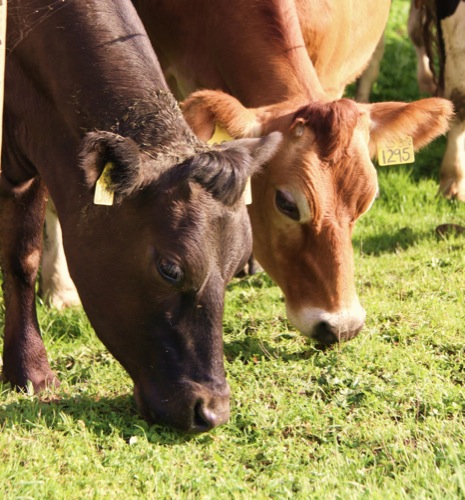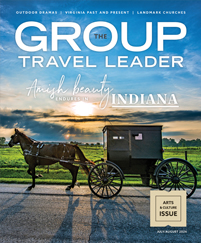Farming in America, something central to our history, economy and, of course, stomachs, has been revitalized many times. The industrial and green revolutions changed the way farmers farm, and tourism has changed how they do business.
In the past, farm tours evoked hayrides, corn mazes and pumpkin patches, and you can still find all those. But today, you’re just as likely to find a state-of-the-art apple maze, raspberry-flavored apple vodka distilleries and expertly trained guides who specialize in leading farm tours.
Across the country, from California and Washington to Illinois, Virginia and even New York City, pioneering farms have made tourism a top business priority.
Today’s American agritourism sites honor their farms’ history — some go back more than 300 years and many for three or more generations — while demonstrating the most modern methods of sustainable agriculture to their guests.
McClelland’s Dairy
Petaluma, California
Although it has changed locations over the last three generations, McClelland’s Dairy has been providing fresh milk to northern California since Robert McClelland began milking Brown Swiss cows in 1938.
“The idea is that the farm will always stay in the family,” said Jana McClelland, his granddaughter.
Either McClelland or her father guides farm tours personally, focusing on their sustainable, organic practices.
“We believe that if we get soils healthier, it passes through to the animals and to the consumer,” McClelland said.
For dairy enthusiasts, the McClellands arrange a showing of their best cows and a discussion of their registered cow families, which are more than 50 years old. All tours end in the milking barn, where 100 cows are milked per hour.
“We also milk a cow by hand,” McClelland said. “We bring out one of our really friendly cows that we show at fairs, and everyone gets a shot at milking by hand. A lot of people have told me it’s on their bucket list. It’s kind of from start to finish. You see the baby calf and how she’s cared for, and then [see] the products that we make.”
Groups can lunch in the picnic area in the front of the farm, and although McClelland said many groups bring their own lunches, she can organize catering or box lunches from local bistros and grocers that use the farm’s products.
McClelland recommends visiting in the spring because, she said, “the grass is green and the cows are eating outside, so it’s very easy to visualize the rotational grazing. We make our own organic butter, and the butter is the best when the cows are eating fresh grass. It changes the texture and color of the butter.”
J and L Green Farm
Edinburg, Virginia
After finishing his service in the Marines, Jordan Green and his wife, Laura, opened their dream farm in the Shenandoah Valley in western Virginia.
Although Green had worked on industrial poultry farms in the past, it was only when he discovered sustainable, pasture-based farming that he got the inspiration for what would grow into an 800-acre beef, pork and poultry farm.
“The root of us starting the farm was really tourism,” Green said. “We cater the tour around the group, building a picture for them, so they leave with a vision of how our type of agriculture works. We show people we can raise food in a way that doesn’t destroy the environment; it enhances it with a symbiotic relationship.”
Green’s tours are tailored to the group’s background but center on the farm’s 100 percent-grass-fed policy, which includes sustainable techniques of building soil and restoring pastures.
“All of those things add up to produce that is healthier for us than what comes from a confined poultry house,” Green said.
After a walking tour or a hayride around the farm, groups can sit down with the family for a home-cooked meal of the farm’s bounty: barbecue chicken or beef, pulled pork and simple desserts that highlight local products.
“The most special experience is when vegetarians come and take a tour — vegetarians for moral reasons, that object to factory farms — and they have a salvation experience where they see the animal in its natural habitat and how we treat it, and they leave and become customers.”











